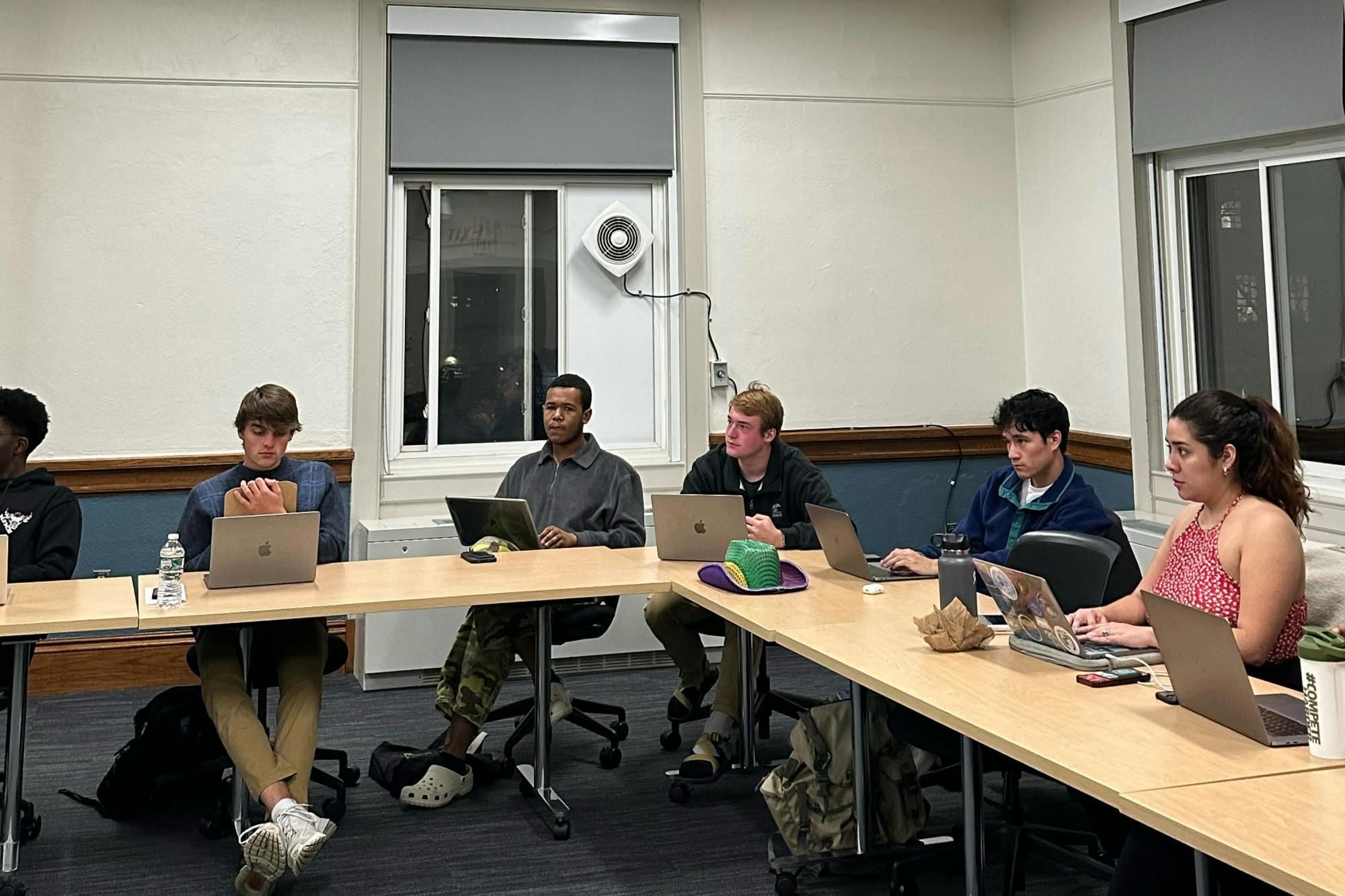On Nov. 5, the Dartmouth Student Government Senate met for its eighth weekly meeting of the fall term. Led by student body president Jessica Chiriboga ’24, the Senate discussed initiatives from its Mental Health Committee regarding student wellness and meetings previously held with campus executives.
School House Senator Roger Friedlander ’27 discussed his communications with Baker-Berry Library staff to change a slideshow displayed in the Baker lobby and the first floor of Berry. According to Friedlander, the slides include “potentially triggering statistics” from a survey conducted by the Sexual Violence Prevention Program, such as how 60% of students say they have been sexually assaulted and that “only” 94% of students say they would help support another student who doesn’t feel safe.
“Some of these we thought were a poor representation of our efforts and not representative of what our goals are,” he said.
East Wheelock House Senator Jon Pazen ’25 added that communication with library staff had centered around adding resources to the slideshow for students who had experienced sexual violence.
North Park House Senator Sydney O’Connor ’27 discussed her recent communications with director of campus planning Joanna Whitcomb about installing hammocks outside of Kemeny Hall. Those hammocks would be available for use through a rent-out program at either the Collis Center or the Student Wellness Center, O’Connor said.
Chief of staff Anthony Fosu ’24 also discussed meeting with Dean of the College Scott Brown and executive vice president for strategy Jomysha Delgado Stephen about clarifications to the College’s Freedom of Expression and Dissent policy. According to previous coverage in The Dartmouth, Chiriboga had raised concerns about inconsistent levels of detail in the College’s Office of Student Life’s and Student Affairs’ policies about “Freedom of Expression and Dissent.”
Fosu said the strategies discussed at the meeting to make the free speech policy more clear included encouraging partnerships between student activists and senior leadership; explaining cultural norms to international students; more clearly defining the support the College can and cannot offer international students and publishing a “frequently asked questions” document on the policy.
Chiriboga then recounted her meeting with senior vice president for capital planning and campus operations Josh Keniston about understanding Dartmouth Dining’s role within the College and their financial operations.
According to Chiriboga, Dartmouth Dining is classified as an “auxiliary operation” by the College, meaning that Dartmouth Dining is expected to cover their operating costs with their own generated revenue, as opposed to operating at a loss as campus organizations classified as “divisions” or “departments” are able to do. However, since the COVID-19 pandemic, Dartmouth Dining has been “in the red,” Chiriboga explained.
She added that, in a separate meeting with Dartmouth Dining director Jon Plodzik, he had explained that “rising food costs, inflation and labor costs” made it more expensive for the College to operate dining locations other than the Class of 1953 Commons.
“That’s definitely been guiding their decision-making as they’re trying to balance their budget and make sure they’re, as an auxiliary program, not in the red anymore,” Chiriboga said.
She suggested advocating “as Dartmouth Student Government and student leaders” for the College to reconsider if Dartmouth Dining should continue to operate as an auxiliary program.
“Wellness is now a big priority of the College, and part of wellness is housing, where you sleep at night and food — what you eat to fuel yourself for all your activities, all your academics,” she said. “If because of inflationary costs and because of labor costs an auxiliary position is no longer tenable, then the College might need to divert funding in some creative ways to make sure dining is fully able to support students where they need.”




